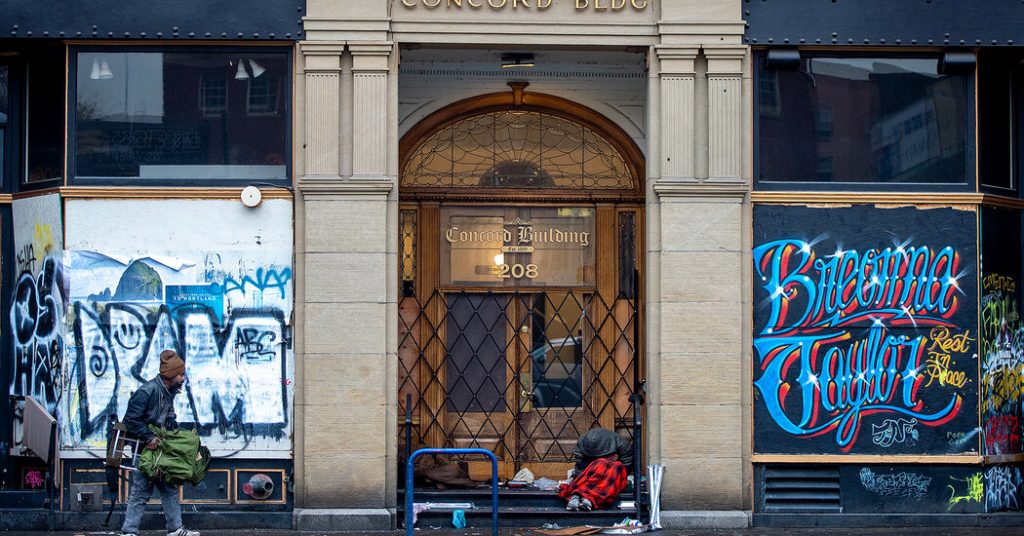Oregon’s groundbreaking plan to decriminalize hard drugs three years ago aimed to shift the focus from punishment to treatment for drug users. However, amidst a spike in overdose deaths and chaos in Portland, Governor Tina Kotek recently signed a law reversing this decision. The move to restore criminal penalties for drug possession represents a major shift away from the ambitious Measure 110, which was designed to provide alternatives to jail for drug users. Portland Mayor Ted Wheeler, facing numerous crises in his city, supports this rollback as a way to restore order and public safety.
Over the past year, Mayor Wheeler has worked to address issues such as homelessness, street protests, and rising overdose deaths. By implementing measures like banning daytime camping and increasing law enforcement presence, he aims to improve the city’s overall safety and quality of life. The new law restores criminal penalties for possession of hard drugs like fentanyl and methamphetamine, allowing individuals to receive treatment instead of facing jail time in many cases.
In an interview, Mayor Wheeler emphasized the importance of building a behavioral health infrastructure alongside restoring law enforcement tools. He acknowledged the failure of the state to implement Measure 110 effectively, leading to a rise in addiction and overdose rates. While the public may have linked these issues to the decriminalization of hard drugs, Mayor Wheeler believes that the lack of adequate treatment services was a crucial misstep in the implementation of the measure.
Mayor Wheeler expressed optimism about Portland’s future despite ongoing challenges. He highlighted improvements in areas like shelter beds, criminal activity, and foot traffic, but acknowledged concerns about public safety. The city’s focus on addressing the nexus of homelessness, mental health, and addiction issues has been complicated by factors like the rise of fentanyl and the impact of the COVID-19 pandemic.
The shift towards more conservative policies on policing, crime, and drug policy across the country reflects a desire for order and security in uncertain times. Mayor Wheeler believes that people are seeking stability and prosperity in their communities, motivating policy changes and reforms. He emphasized the importance of having a strong treatment infrastructure in place before considering drug decriminalization.
As other states and cities consider drug decriminalization in the future, Mayor Wheeler’s guidance is clear: ensure that the treatment infrastructure is in place before implementing any policy changes. While he believes there is a future where decriminalization in favor of treatment could happen again, he stressed the need for adequate behavioral health services to support such initiatives. Mayor Wheeler views Oregon’s experiment with drug decriminalization as a bold but failed one, emphasizing the importance of proper implementation and timing in future policy decisions.


